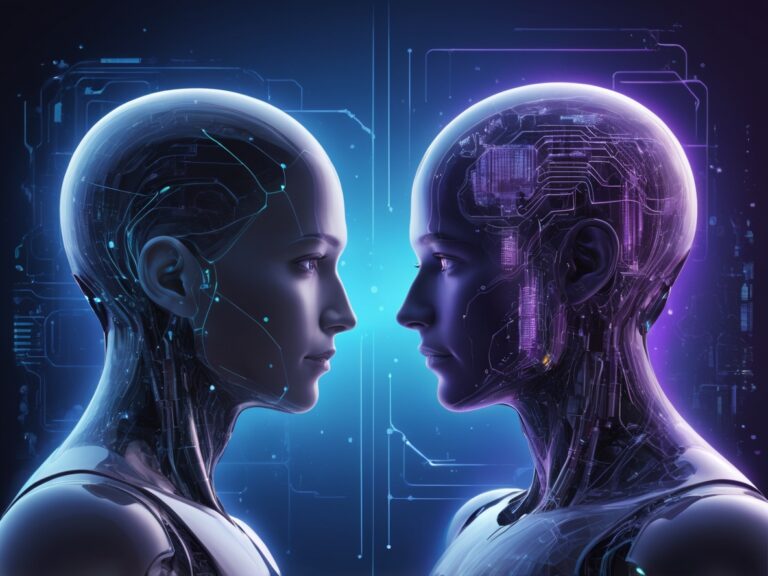In the rapidly evolving landscape of artificial intelligence, new models emerge regularly to challenge established players. Today, we’ll dive deep into a comparison between DeepSeek and ChatGPT, examining their capabilities, strengths, and potential applications. This comprehensive analysis will help you understand how these AI models stack up against each other in various aspects.
Understanding the Foundations
DeepSeek and ChatGPT represent different approaches to large language model development, each with its unique architecture and training methodology. While both models aim to process and generate human-like text, their underlying technologies and capabilities differ significantly.
DeepSeek: The New Challenger
DeepSeek emerges from extensive research in neural network architectures and represents a significant advancement in AI technology. Built on a foundation of transformer-based architecture, it introduces several innovative features:
- Advanced context processing capabilities
- Enhanced reasoning abilities
- Improved mathematical and scientific comprehension
- Robust multilingual support
- Specialized coding capabilities
ChatGPT: The Established Pioneer
ChatGPT, developed by OpenAI, has set numerous benchmarks in the field of conversational AI. Its key features include:
- Strong natural language understanding
- Versatile task handling
- Extensive knowledge base
- Refined conversation abilities
- Broad application support
Performance Comparison
Language Processing and Generation
Both models excel in natural language processing, but they show distinct characteristics:
DeepSeek demonstrates particular strength in:
- Technical documentation generation
- Code analysis and optimization
- Scientific writing and explanation
- Mathematical problem-solving
ChatGPT shows exceptional capability in:
- Creative writing
- Conversational engagement
- Content adaptation
- Context maintenance
Technical Capabilities
The technical prowess of both models reveals interesting distinctions:
DeepSeek’s Technical Strengths:
- Superior performance in programming tasks
- Enhanced mathematical computation accuracy
- Improved logical reasoning capabilities
- Better handling of complex technical specifications
ChatGPT’s Technical Advantages:
- More intuitive code explanation
- Broader programming language support
- Accessible technical communication
- Versatile problem-solving approaches
Practical Applications
Understanding how these models perform in real-world scenarios provides valuable insights into their practical utility.
Business Applications
Both models offer significant value for business applications:
DeepSeek excels in:
- Technical documentation
- Data analysis
- Research synthesis
- Engineering solutions
ChatGPT demonstrates strength in:
- Customer service
- Content creation
- Business communication
- Marketing copy generation
Educational Use Cases
The educational potential of both models presents interesting opportunities:
DeepSeek’s Educational Benefits:
- Advanced technical tutoring
- Scientific concept explanation
- Mathematical problem-solving
- Research assistance
ChatGPT’s Educational Advantages:
- Interactive learning experiences
- Simplified concept explanation
- Diverse subject coverage
- Adaptive teaching approaches
Making the Right Choice
The selection between DeepSeek and ChatGPT should depend on specific use case requirements:
Choose DeepSeek when:
- Technical accuracy is paramount
- Complex mathematical operations are needed
- Scientific research support is required
- Programming assistance is the primary focus
Opt for ChatGPT when:
- Conversational interaction is key
- Creative content generation is needed
- General-purpose assistance is required
- User-friendly interaction is prioritized
Future Implications
The competition between these models drives innovation in AI technology. Future developments may include:
- Enhanced integration capabilities
- Improved specialized task handling
- Advanced reasoning abilities
- Broader knowledge application
Conclusion
Both DeepSeek and ChatGPT bring unique strengths to the table. DeepSeek shows particular promise in technical and scientific applications, while ChatGPT maintains its position as a versatile general-purpose AI assistant. The choice between them ultimately depends on specific use case requirements and desired outcomes.
Understanding these differences helps organizations and individuals make informed decisions about which tool better suits their needs. As AI technology continues to evolve, we can expect both models to improve and adapt, potentially narrowing some gaps while creating new differentiating features.
